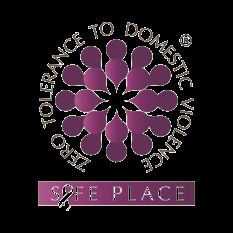Safeguarding
If you are experiencing domestic abuse, we want you to know that you are not alone. You will be believed, and you will be heard. We also know that it is not an easy decision to reach out and ask for help.
Domestic violence and abuse affects many people and is now well recognised as a public health issue. Domestic abuse can affect families from all backgrounds in every community, and we know that problems can escalate during holidays.
We continue to work in conjunction with partner agencies such as the PSNI and Women’s Aid to ensure that help and support is offered to those who need it. We also team up with Southern Health and Social Care Trust, the South Eastern Health Social Care Trust and Armagh, Banbridge and Craigavon Borough Council to support people who may be experiencing domestic violence abuse.
If things are not okay at home and you are worried, need advice or support, call one of the numbers below and there will be someone to listen to you and provide you with help.


To report a concern or to speak to someone in confidence:
In an emergency dial 999
Southern Health and Social Care Trust:
T: 0800 783 7745 (9am-5pm Monday to Friday)
South Eastern Health and Social Care Trust:
T: 0300 100 0300 (9am-5pm Monday to Friday)
Emergency Social Work Service (Regional):
T: 028 9504 9999 (5pm-9am Monday to Friday, 24 hours Saturday/Sunday/Bank Holidays)
For further information please visit:
Domestic Abuse | Southern Health & Social Care Trust:
W: https://setrust.hscni.net/service/south-eastern-domestic-violence-partnership/
24 Hour Domestic and Sexual Violence Helpline:
T: 0808 802 1414 (24 hours)
Women's Aid Armagh-Down:
T: 028 3025 0765 or 028 3839 7979
E: admin@womensaidarmaghdown.org
W: womensaidarmaghdown.org/
Children and Young Peopole's Strategic Partnership (CYPSP)
CYPSP works to improve young lives, including tackling domestic violence. It offers support and many resources that you can access to get the help you need.
W: https://cypsp.hscni.net/youth-wellness-web/
Safeguarding
For further information contact Gary Scott, Safeguarding Coordinator.
E: Gary.Scott@nmandd.org
T: 07776 165 792
To view our Safeguarding leaflet click here.

The NMDDC Safe Place Initiative
Newry, Mourne and Down District Council is committed to the principle that Domestic Abuse and Sexual Violence is unacceptable behaviour and everyone has the right to live free from fear and abuse.
The Council has been working in partnership with Onus NI on the introduction of the Safe Place Initiative across key Council facilities in the district. The Safe Place Initiative was launched by Onus NI in 2011 and since then over 1700 organisations have registered as a Safe Place. The premise behind the initiative is that it allows any business, organisation, church, school or community group to provide a ‘Safe Place’ where anyone affected by domestic abuse can confidentially access information on the range of support services available to them.
Details of all fourteen Safe Place locations can be found below and all locations will display the Safe Place logo indicating that information on services for anyone affected by domestic violence and abuse is available at the specific site location.
The Safe Place locations across Newry, Mourne and Down District Council facilities are listed as follows:
1. Down Leisure Centre, 114 Market Street, Downpatrick BT30 6LZ
2. Kilkeel Leisure Centre Mourne Esplanade, Newry BT34 4DB
3. Newcastle Centre Complex 10-14 Central Promenade, Newcastle BT33 0AA
4. Newry Leisure Centre, 61 Patrick St, Newry BT35 8TR
5. Bessbrook Community Centre, Mill Road, Newry BT35 7DS
6. Cloughreagh Community Centre, Millvale Road, Newry BT35 7NH
7. Newry Town Hall Bank Parade, Newry BT35 6HP
8. Council Offices, O’Hagan House Monaghan Row, Newry BT35 8DJ
9. Kilbroney Park, Shore Road, Rostrevor BT34 3AA
10. Council Offices, Downshire Civic Centre, Ardglass Road, Downpatrick BT30 6GQ
11. Greenbank Industrial Estate, Unit 19 Greenbank Industrial Estate Rampart Road, Newry BT34 2QU
12. Crossmaglen Community Centre, Cardinal O'Fiaich Square, Newry BT35 9AA
13. Warrenpoint Town Hall, Church Street, Warrenpoint BT34 3HN
14. Ballynahinch Community Centre, 55 Windmill Street, Ballynahinch BT24 8HB







